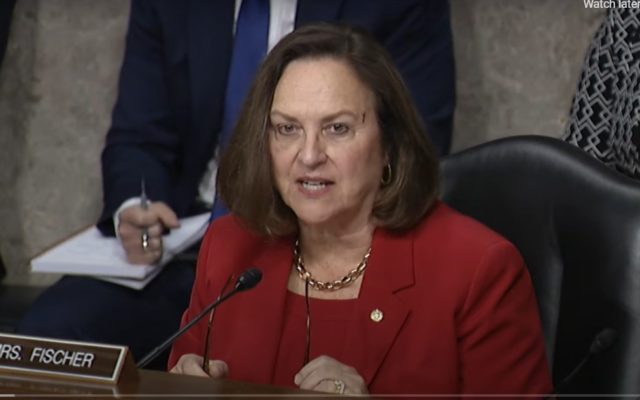Senator Fischer Introduces Legislation To Address Pilot Shortage

(KFOR NEWS July 26, 2022) WASHINGTON, D.C. – Nebraska U.S. Republican Senator, Deb Fischer, a member of the Senate Commerce Committee, joined five of her colleagues Monday in introducing the Let Experienced Pilots Fly Act to address airline flight cancellations caused by a shortage of pilots.
The legislation:
- Raises the mandatory commercial pilot retirement age from 65 to 67.
- Requires that pilots over the age of 65 maintain a first-class medical certification, which must be renewed every six months.
- Requires air carriers to continue using pilot training and qualification programs approved by the Federal Aviation Administration (FAA).
- Does not change or alter any other qualification – beyond age – to become a commercial airline pilot.
“Our nation’s air travel system is struggling with a pilot shortage. The lack of available pilots causes flight cancellations and service reductions. This hurts Nebraska airports that rely on the Essential Air Service to stay connected. Raising the retirement age is a common-sense solution that will help to alleviate this crisis,” said Senator Fischer.
In May, Sen. Fischer highlighted how critical the Essential Air Service (EAS) is to communities across Nebraska and the country.
U.S. Sen. Lindsey Graham (R-South Carolina) led the introduction of the bill. Additional cosponsors include: Sens. John Thune (R-South Dakota), Chuck Grassley (R-Iowa), Cynthia Lummis (R-Wyoming), and Marsha Blackburn (R-Tennessee).
BACKGROUND:
With baby boomers making up half of the airline pilot population, roughly 5,000 fully qualified pilots will be forced to retire within the next two years and the problem will grow even more acute in the following years. The wave of forced pilot retirements continues even as hundreds of flights are being cancelled due to a shortage of available pilots and crews.
In 2007, the retirement age for pilots in the United States was raised from 60 to 65 after medical reports concluded age had an ‘insignificant impact’ on performance in the cockpit and there were safety precautions already in place to prevent accidents in case of incapacitation. Nothing in this legislation changes current safety and proficiency procedures for commercial pilots. Pilots will continue to be held to an incredibly high standard to ensure passenger safety.
READ MORE: Three People Rescued After Vehicle Plunged Into South Lincoln Creek



